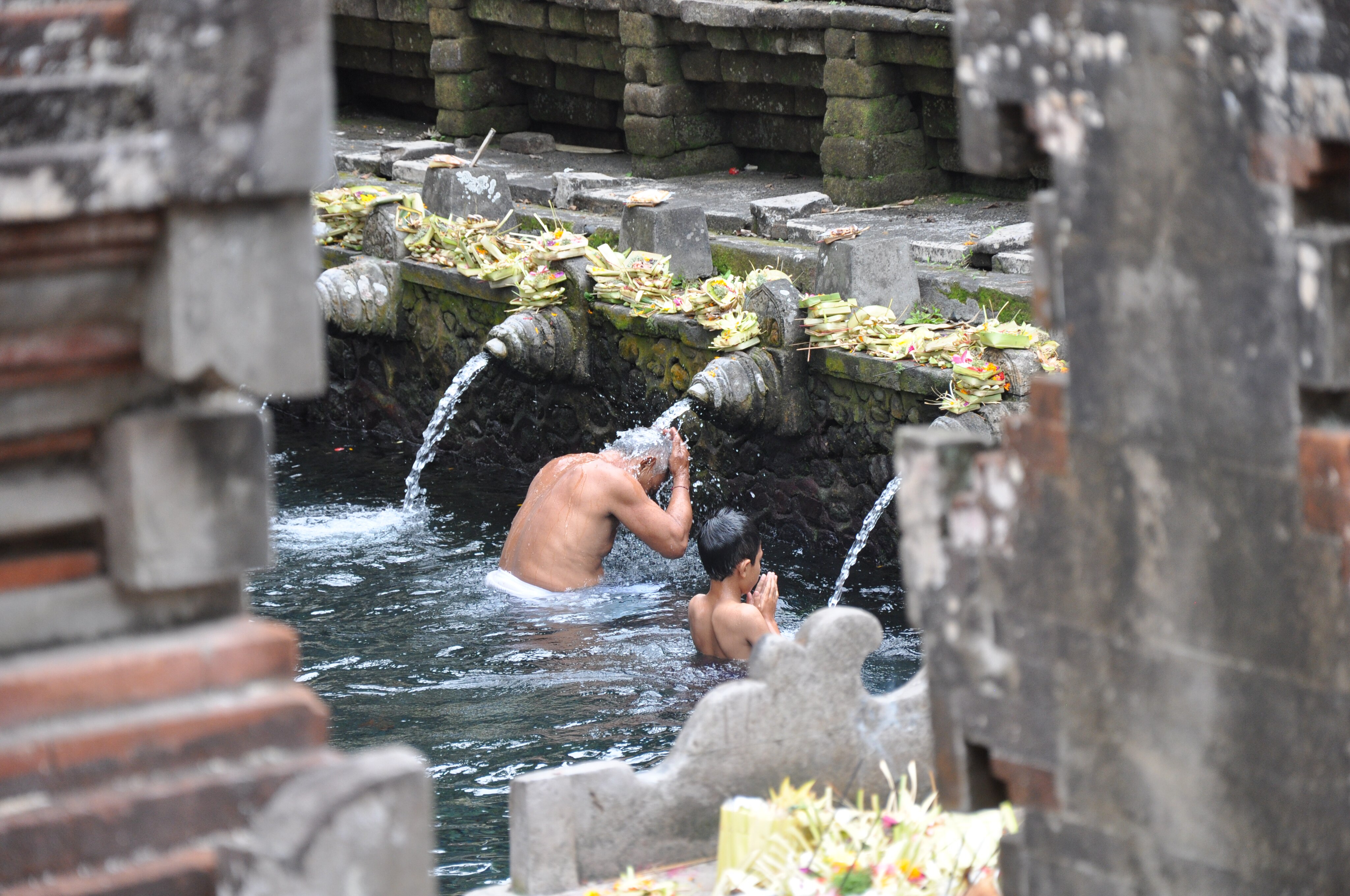

Downloads
DOI:
https://doi.org/10.58981/bluepapers.2024.1.06Published
Issue
Section
License
Copyright (c) 2024 Matteo D’Agostino, Carola Hein

This work is licensed under a Creative Commons Attribution 4.0 International License.
How to Cite
Keywords:
values, value case approach, water values, ecosystem thinking, long-term perspectiveAbstract
The concept of values has become increasingly important in many fields, including water management, heritage preservation and design. Politicians, economists, water managers, heritage specialists and designers often consider values as guiding principles for their interventions. While water management has traditionally focused on technological and economic values, in recent decades there has been growing recognition of the significance of socio-cultural aspects. This shift is evident in initiatives like the United Nation’s Valuing Water Initiative, which recognized five “Valuing Water Principles” as guidelines for incorporating the values associated with water in decision-making. However, how to define and implement these values in particular contexts has not yet been clearly established, with approaches varying across disciplines and fields. Understanding the complex interdependencies and values characterizing each water system can help develop a strategy for integrated management of water with the goal of sustainable development with a long-term perspective and a design focus.
References
Britannica Dictionary. n.d. “Value.” Accessed 24 April, 2024. https://www.britannica.com/dictionary/value.
Damayanti, Vera D., Hasti T. Dipowijoyo, Kemas R. Kurniawan, Jacqueline Rosbergen, Peter Timmer, and Punto Wijayanto. 2022. “Two Towns in Indonesia, One on the Coast, the Other ‘A City of One Thousand Rivers’: Historic Urban Landscape (HUL) Quick Scan Method Workshops and Publication of Handbook for Indonesian University Lecturers.” Blue Papers 1, no. 1: 119–27. https://doi.org/10.58981/bluepapers.2022.1.12.
DuBois, Lindsay and Daniel Salas. 2021. “Value and politics: introduction to the special issue.” Dialect Anthropology 45: 3–7. https://doi.org/10.1007/s10624-021-09622-9.
Eulisse, Eriberto. 2023. “Museums for the Past and Future Meaning of Water.” Blue Papers 2, no 1: 112–23. https://doi.org/10.58981/bluepapers.2023.1.11.
Graeber, David, 2013. “It Is Value That Brings Universes into Being.” HAU: Journal of Ethnographic Theory 3, no. 2: 219–43.
Hein, Carola M., Matteo D’Agostino, Carlien E. Donkor, Queenie Lin, Zuzanna Sliwinska, and Julia Korpacka. 2023. “Editorial Issue 2/2023: Living with Water: Bringing Back Human-Water Relationships.” Blue Papers 2, no. 2: 6–11. https://doi.org/10.58981/bluepapers.2023.2.ed.
Hein, Carola M., Ingrid Mulder and Hilde Sennema. 2021. “A Call for Value Literacy in Port City Transitions.” European Journal of Creative Practices in Cities and Landscapes (CPCL) 4, no. 2: 108–29. https://doi.org/10.6092/issn.2612-0496/12393.
Houngbo, Gilbert, F. 2023. “Take Time to Reflect on Water.” UN Chronicle (March 8) Accessed April 10, 2023. https://www.un.org/en/un-chronicle/take-time-reflect-water.
IWRM Action Hub. n.d. “IWRM Explained.” Accessed 24 April, 2024. https://iwrmactionhub.org/about/iwrm-explained
Jansen, Maurice, and Carola Hein. 2023. “Port City Symbiosis: Introduction To The Special Issue.” Maritime Economics & Logistics 25: 211–29. https://doi.org/10.1057/s41278-023-00257-x.
Kluckhohn, Clyde. 1951. “Values and Value-Orientations in the Theory of Action: An Exploration in Definition and Classification.” In Toward a General Theory of Action, edited by Talcott Parsons and Edward A. Shils, 388–433. Harvard University Press, Cambridge. http://dx.doi.org/10.4159/harvard.9780674863507.c8.
Larkin, Brian. 2013. “The Politics and Poetics of Infrastructure.” Annual Review of Anthropology 42: 327–43. https://doi.org/10.1146/annurev-anthro-092412-155522.
Manzione, Rodrigo L. 2024. “From Landmarks to Watermarks: Water Towers as Hidden Signs of Water through the Value Case of Ourinhos, Brazil.” Blue Papers 3, no. 1. (forthcoming).
Mosse, David. 2004. “Is Good Policy Unimplementable? Reflections on the Ethnography of Aid Policy and Practice.” Development and Change 35, no. 4: 639–71. https://doi.org/10.1111/j.0012-155X.2004.00374.x.
Pellegrom, Sandra. 2023. “The UN SDGs as Compass for Sustainable Water and Heritage Management.” Blue Papers 2, no. 1: 14–21. https://doi.org/10.58981/bluepapers.2023.1.01
Porta, E. Lynn, and Aaron T. Wolf. 2023. “Water, Culture and International Institutions.” Blue Papers 2, no. 2: 16–25. https://doi.org/10.58981/bluepapers.2023.2.01.
Orlove, Ben, and Steve Canton. 2010. “Water Sustainability: Anthropological Approaches and Prospects.” Annual Review of Anthropology 39: 401–15. https://doi.org/10.1146/annurev.anthro.012809.105045.
Robbins, Joel and Sommerschuh, Julian. 2016. “Values.” In The Cambridge Encyclopedia of Anthropology, edited by Stein, Felix, Sian Lazar, Matei Candea Matei, Hildergard Diemberger, Joel Robbins, Andrew Sanchez and Rubert Stasch, Rupert. Cambridge: Cambridge University Press.
Sorensen, Andre. 2015. “Taking Path Dependence Seriously: An Historical Institutionalist Research Agenda in Planning History.” Planning Perspectives 30, no. 1:17–38. http://doi:10.1080/02665433.2013.874299.
Sorensen, Andre. 2017. “Planning History and Theory: Institutions, Comparison, and Temporal Processes.” In The Routledge Handbook of Planning History, edited by Carola Hein, 35–45. New York: Routledge.
Tulder, Rob, and Emilie van Mil. 2022. Principles of Sustainable Business: Frameworks for Corporate Action on the SDGs. Oxon, UK: Routledge.
UN-Water. 2021. The United Nations World Water Development Report 2021: Valuing Water. UNESCO, Paris. https://unesdoc.unesco.org/ark:/48223/pf0000375724.
UNEP. n.d. “Integrated Water Resource Management.” Accessed 24 April, 2024. https://www.unep.org/topics/fresh-water/water-resources-management/integrated-water-resources-management.
UNESCO. 1972. Convention Concerning the Protection of the World Cultural and Natural Heritage. Paris: UNESCO
UNESCO. 2016. Changing minds not climate. Paris: UNESCO. https://unesdoc.unesco.org/ark:/48223/pf0000245977.
Van Dooren, Elise. 2020. Anchoring the Design Process: A framework to make the designerly way of thinking explicit in architectural design education. Delft University of Technology, A+BE | Architecture and the Built Environment. https://doi.org/10.7480/ABE.2020.17.5351.
Vereecke, Jean-François, and Sandrine Deveycx. 2022. “The ‘(Water) Canvas’ as a Tool For the Analysis, Interpretation and Planning of Water Territories and Heritage.” Blue Papers 1, no. 1: 99–105. https://doi.org/10.58981/bluepapers.2022.1.10.
Von Schnitzler, Antina. 2008. “Citizenship Prepaid: Water, Calculability, and Techno-Politics in South Africa.” Journal of Southern African Studies 34, no. 4: 899–917. http://www.jstor.org/stable/40283199.
World Bank. n.d. “Water.” Accessed 24 April, 2024. https://www.worldbank.org/en/topic/water/overview.


